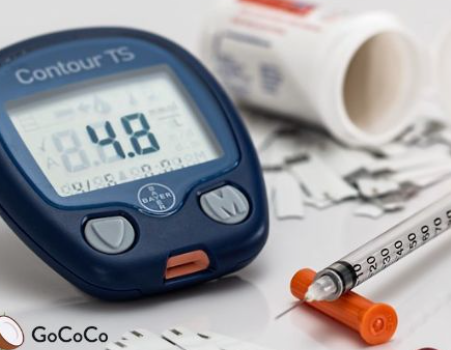
Type 2 diabetes remission is more than just a hopeful concept – it’s a real possibility for many people. With the right lifestyle changes, including improved eating habits, weight loss, and regular physical activity, individuals can successfully lower their blood sugar levels to a non-diabetic range without relying on medication. However, it’s important to understand that remission does not mean a permanent cure – it’s more like hitting the pause button. Maintaining this remission requires ongoing effort and commitment.
What is Type 2 Diabetes Remission?
Type 2 diabetes remission refers to the ability to maintain normal blood sugar levels for an extended period without the use of medications. It’s crucial to differentiate remission from a cure. While remission means that symptoms are absent for now, the possibility of relapse remains if lifestyle changes are not sustained.
There are two primary categories of remission:
- Partial Remission: In this case, HbA1c (the average blood sugar over three months) is less than 6.5%, and fasting blood glucose levels are between 5.6 and 6.9 mmol/L. These levels must be sustained for at least one year without medication.
- Complete Remission: Here, HbA1c is below 6.0%, and fasting glucose is below 5.6 mmol/L, again maintained for at least one year without diabetes medications.
How is Remission Measured?
The most common measure for diabetes remission is HbA1c, which reflects average blood glucose over the past two to three months. According to the Association of British Clinical Diabetologists (ABCD) and the Primary Care Diabetes Society (PCDS), remission is confirmed when both fasting plasma glucose (FPG) is below 7 mmol/L and HbA1c is under 6.5% on two separate occasions, at least six months apart.
Scientific Evidence Supporting Type 2 Diabetes Remission
Several clinical studies have shown that remission is achievable for many individuals. One of the most significant studies is the DiRECT trial, which demonstrated that nearly 46% of participants who followed a very low-calorie diet (825–853 kcal/day) for 3 to 5 months achieved remission after one year. Furthermore, 36% remained in remission after two years. Another important study, the Look AHEAD trial, found that intensive lifestyle changes, including diet and exercise, improved blood glucose control and reduced the need for diabetes medications.
What Healthcare Guidelines Say About Remission
Both the NHS and the World Health Organization (WHO) now recognize that type 2 diabetes remission is a realistic goal, especially when supported by structured interventions and medical supervision. The NHS’s Low-Calorie Diet Programme has shown promising results, with 32% of participants achieving remission, thanks to a combination of weight loss and dietary changes.
The Role of Diet in Type 2 Diabetes Remission
Diet is a crucial factor in achieving remission from type 2 diabetes. Several dietary approaches have been proven effective in improving blood sugar control:
- Low-Carb Diets: These diets limit carbohydrate intake, focusing on lean proteins, non-starchy vegetables, healthy fats, and reducing sugars and refined carbs. Reducing carbs helps lower blood sugar spikes and improves insulin sensitivity.
- Very Low-Calorie Diets (VLCD): VLCDs, such as those used in the DiRECT trial, provide 800–900 kcal/day through meal replacements for 8–12 weeks. These diets target insulin resistance by reducing excess fat, particularly around the liver and pancreas.
- Mediterranean and Plant-Based Diets: The Mediterranean diet, rich in fruits, vegetables, legumes, whole grains, and healthy fats, has been linked to a lower risk of diabetes and better overall health. Plant-based diets, including vegan and vegetarian options, also show promise in managing blood sugar levels, as they are low in saturated fats and high in fiber and antioxidants.
Importance of Nutritional Support from a Registered Dietitian
While dietary changes are essential, ongoing nutritional support from a registered dietitian (RD) can significantly enhance the chances of maintaining remission. A dietitian can help:
- Tailor eating plans to individual needs
- Monitor progress and adjust meals as needed
- Provide education on managing diabetes triggers
- Ensure nutritional adequacy and sustainability of the diet
Other Lifestyle Factors that Support Remission
- Physical Activity: Regular exercise improves insulin sensitivity, promotes weight loss, and lowers HbA1c. A combination of aerobic exercise (like walking or swimming) and resistance training (like weightlifting) is most effective.
- Weight Loss: Losing weight, especially abdominal fat, is one of the most powerful predictors of remission. Even a 5–10% reduction in body weight can improve insulin sensitivity and help restore pancreatic function.
- Sleep and Stress Management: Poor sleep and high stress can elevate cortisol levels, making it harder to manage blood sugar. Practicing stress reduction techniques like yoga or mindfulness and improving sleep hygiene can improve glucose regulation.
Who Can Achieve Remission?
While remission is most commonly achieved in individuals who have been diagnosed with type 2 diabetes for less than six years, it is still possible for others. Weight loss is the most significant factor, with those who lose 10 kg or more having the best chance of remission. Early intervention and lower blood sugar levels at diagnosis also contribute to better outcomes. Even those on multiple medications can achieve remission, though it may be more challenging.
Is Remission Permanent?
Unfortunately, remission from type 2 diabetes is not permanent. The DiRECT trial found that weight regain can lead to a relapse of diabetes symptoms. Maintaining weight loss and preventing fat accumulation in the liver and pancreas are key to sustaining remission. Regular monitoring and support are essential for long-term success.
The Role of Medical Supervision in Remission
Medical supervision is vital to achieving and maintaining type 2 diabetes remission safely. Healthcare providers guide patients through structured lifestyle interventions, track key health markers, and provide support when challenges arise. They can also refer patients to other professionals, such as mental health support or physical therapy, if needed.
Can Remission Be Achieved Without Weight Loss?
While weight loss plays a critical role, remission can also be achieved through dietary changes, exercise, and medication. Every individual’s path to remission may be different, and personalized approaches are essential.
Is Medication Still Needed?
In some cases, medications may no longer be necessary if blood glucose levels remain stable for several months. However, any change in medication should always be done under medical supervision to avoid complications.
Can Remission Be Achieved at Any Age?
Remission is more likely in younger individuals or those recently diagnosed, but with the right lifestyle interventions, it is possible at any age.
Conclusion
Type 2 diabetes remission is achievable for many people, particularly with the right combination of diet, exercise, and medical support. While remission is not a cure and requires ongoing commitment, it is an empowering goal that can help individuals regain control of their health. By focusing on weight loss, healthy eating, and physical activity, many can bring their blood sugar levels into a non-diabetic range and maintain remission with proper care and support.










